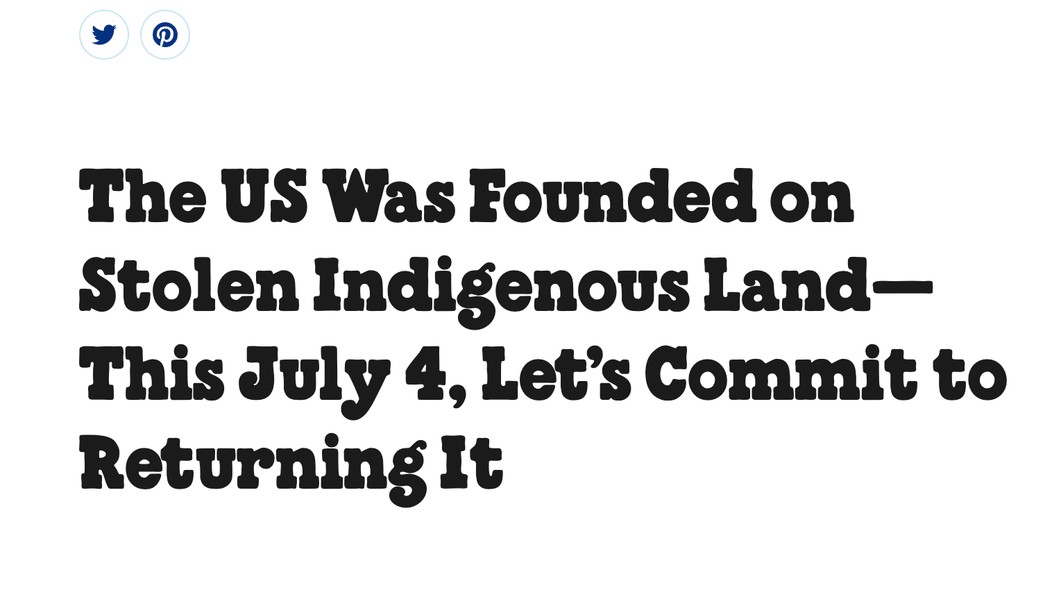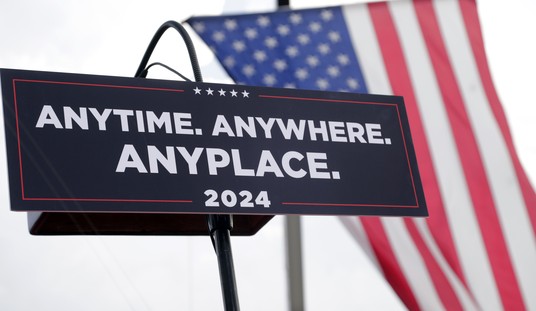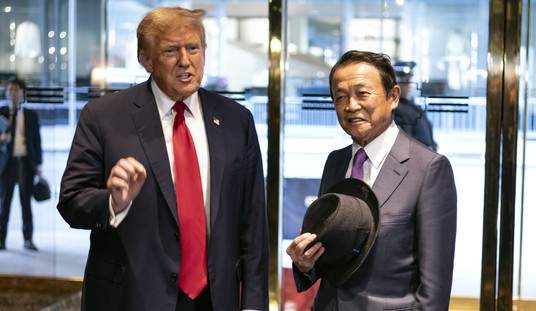I think the British are still smarting that the 13 colonies declared independence from the British Empire.
That’s the easiest conclusion I can reach after reading that Ben and Jerry’s is pushing for the return of “Indigenous Land” to Native Americans.
This 4th of July, it's high time we recognize that the US exists on stolen Indigenous land and commit to returning it. Learn more and take action now: https://t.co/45smaBmORH pic.twitter.com/a6qp7LXUAE
— Ben & Jerry's (@benandjerrys) July 4, 2023
I bet you didn’t know that Ben and Jerry’s is actually, now, a wholly owned subsidiary of Unilever, a London-based multinational behemoth. You know most of Unilever’s brands, and chances are you use quite a number of them.


We tend to think of Ben and Jerry as socialist icons who run their company for the good of the planet. What Ben and Jerry actually are is super-wealthy sellouts who sold their company in 2000 for a staggering $326 million, and who have been virtue signaling ever since. The company itself of course maintains its virtue signaling as well, because it is an important part of their branding.
What Ben and Jerry’s is not, though, is a socialist-leaning American company with any moral standing to lecture Americans about returning land to the tribes. If they want to purchase that moral standing, may I suggest Unilever hand over all the assets it holds in the United States to the tribes and apologize for having profited off the moral atrocities to which they apparently object.
Otherwise, they should STFU.
The movement to return the land of America back to the Native Americans is based upon a logical absurdity–that there is any way to do that. There are 330 million Americans living in the United States, and all of North, Central, and South America would count as “stolen land,” although that classification itself is rather difficult because much of Mexico, Central America, and parts of South America are peopled mainly by Mestizos who are of mixed heritage.
Further, the same people who want to return “stolen land” are also opening the border wide, allowing people from around the world to enter the country freely, which seems in opposition to the movement to return the land to the 2.7 million Native Americans who still live here. More illegal aliens enter the US in 7 months through our borders than that.
Make it make sense.
Now Ben and Jerry’s argues we should START by returning the Black Hills to the Lakota Sioux, who actually do have a reasonable case to make, if an impractical one. The area in question was originally included in the reservation ceded to the Sioux in the Laramie Treaties. I won’t defend the morality of the wars with the tribes that led to the treaty–Native Americans got screwed, although history suggests that not all tribes were exactly peaceful with each other over the centuries.
There is certainly nothing unique about what happened to the Native Americans. Read a little history and you will realize that almost nobody who inhabits a land arrived there first and that transfers of territory were never peaceful.
There is no real ambiguity regarding what happened to the Black Hills after the Laramie treaties, though. The title to the land was held by the Sioux, all nice and legal. Yet when gold was discovered in the Black Hills the treaty was abrogated. This is a blatant violation of modern legal standards.
The Supreme Court agreed in 1980 (over a century later) and awarded $100 million to the tribes, but the tribes understandably refused the compensation demanding a return of the land. This is likely impractical due to the passage of time, but at least in spirit, their case is rock solid. The US broke a treaty. By our law, the monetary compensation should suffice, but if I were in their position I would feel aggrieved.
Ben and Jerry’s claims that returning the Black Hills would be a “start” to returning all the Americas to the tribes, wiping away the distinction between a clear-cut treaty violation and a centuries-long migration of peoples. They are hardly the same thing, and the reasonableness of the demands is different in kind and not just in scope. The Black Hills argument is pretty clear cut, the colonization of the continents is not. In practical terms, a few million natives spread around two enormous continents would never be able to make a case to “ownership.” The world simply doesn’t work that way and never has.
Regardless, transnational corporations have no standing to make such cases, especially when they simultaneously benefit from the reality they so ardently decry.
The fact that Unilever is British just puts the icing on the cake. Brits demanding American citizens leave the country they originally settled is too ironic to ignore.








Join the conversation as a VIP Member